Basset hounds are the cutest dogs with their long ears, tiny legs, and soulful eyes. They’re affectionate and friendly. But before you adopt, you might want to hear some of the most common complaints about basset hounds! Like every breed, they’re not right for everybody.
Some common complaints about basset hounds are that they’re loud, messy, and clingy. They also have strong prey drives, sniff everything, and love to dig. Basset hounds are prone to a number of genetic health conditions.
In this article, we’ll discuss the problems with basset hounds so you can see whether this breed is the right one for you.
#1: Basset Hounds are Clingy
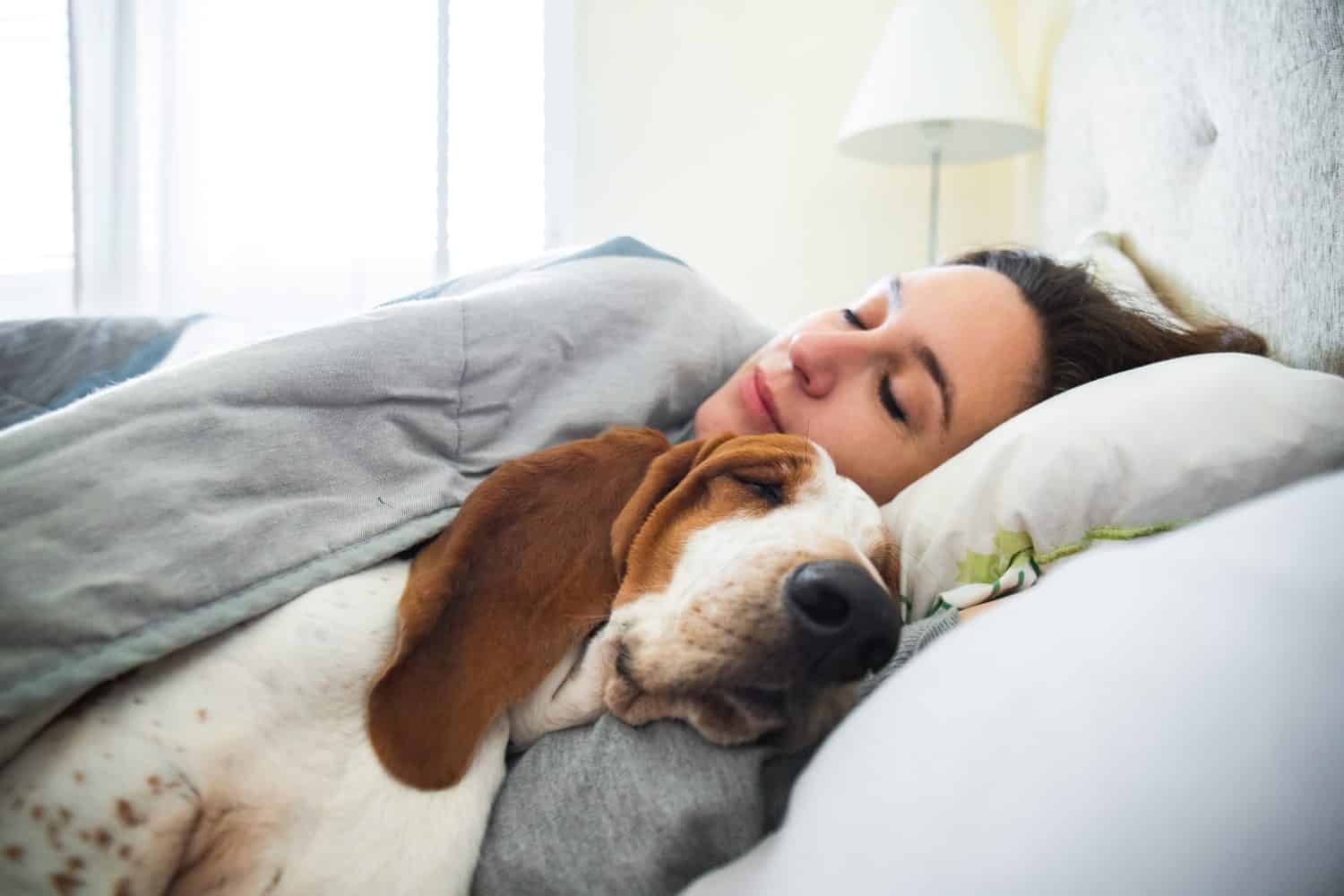
Your basset hound will want to be by your side constantly.
©Daniel Myjones/Shutterstock.com
Basset hounds are prone to separation anxiety and tend to be very clingy toward their favorite people. It’s best to only adopt one if you or a family member is home most of the day. For instance, basset hounds do well with couples who work opposing shifts or are only gone at the same time for a couple of hours daily.
It’s also important to get your basset hound used to being alone for short durations at a young age. For instance, leave the room for a few seconds at a time while they’re occupied with food or a chew. Gradually work up to longer periods as they’re comfortable. Keep their experiences being alone as positive as possible.
#2: They’re Ruled by Their Noses
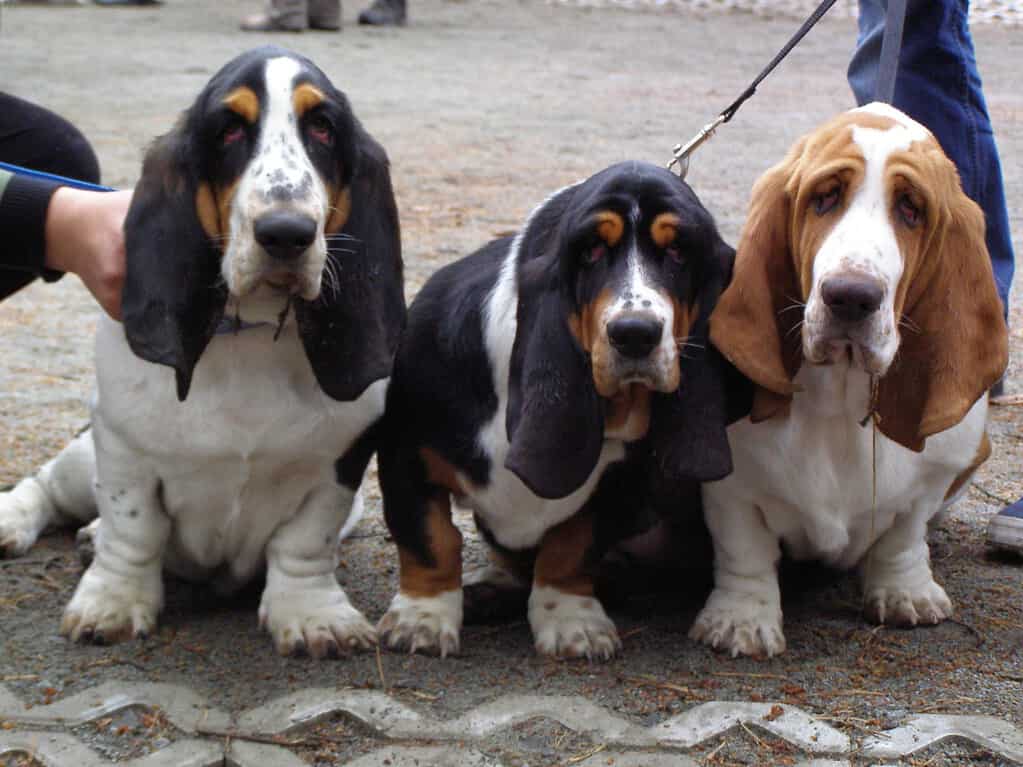
Basset hounds prefer slow sniff walks instead of keeping a quick pace.
©Ondra Lachman / Public domain – License
“My basset hound sniffs too much on walks,” is a common complaint! These hound dogs get a lot of enrichment through sniffing their environment, and it’s best to let them enjoy their walks as they please.
Remember that walks are for your dog’s enjoyment, and you can always play at home to get more of their energy out or go for a walk without them if you want to keep a faster pace.
A basset hound’s nose can also make them wander if allowed off-leash. Always keep your pup on their leash or in a well-enclosed space to prevent them from running away after prey!
#3: They Have Strong Prey Drives
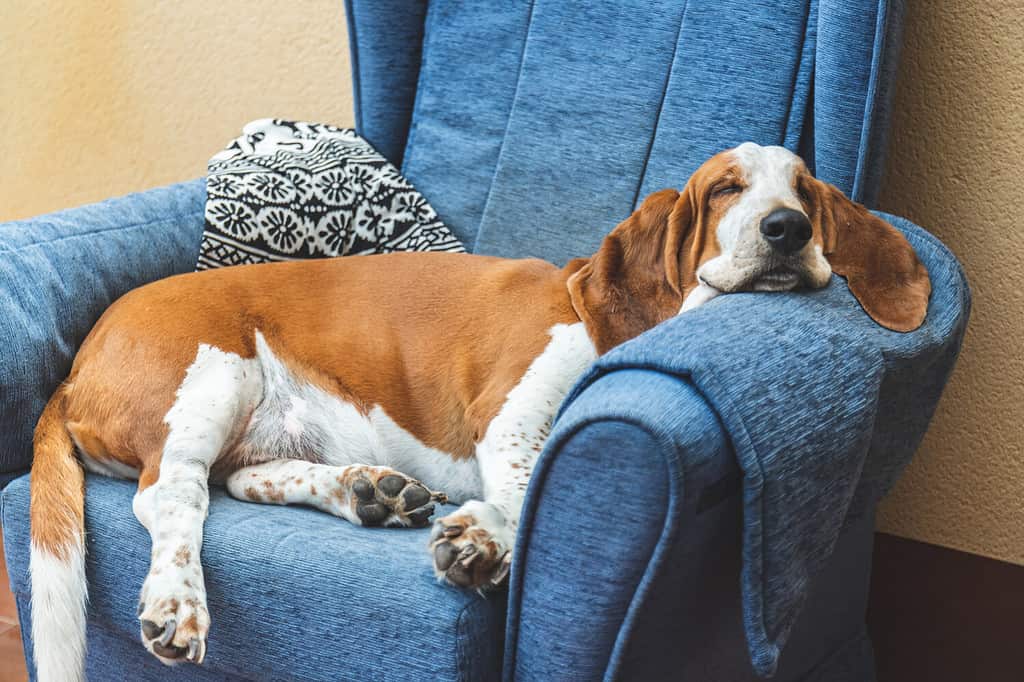
They may seem like total couch potatoes, but basset hounds enjoy chasing prey as well!
©Daniel Myjones/Shutterstock.com
Chasing small animals is another common complaint about basset hounds. If you don’t like your pet to bring you dead animals, this breed may not be right for you.
They were initially bred to hunt rabbits, hares, and other animals. Though they’re typically more interested in chasing rodents, some basset hounds may see cats as prey–especially outdoor cats who run away.
#4: Basset Hounds Like to Dig

Basset hounds love to dig holes.
©Akos Nagy/Shutterstock.com
Since basset hounds are diggers, you may need to invest in underground fencing or supervise them in the backyard. Even if they don’t dig at the fenceline, they might destroy your yard with holes!
You can make a dig box for your dog using play sand, give them blankets to root through and bury toys in indoors, or refill your used shipping boxes with treats or toys that they can rifle through. All of these things engage their instincts in a less destructive way.
#5: They’re Stronger Than They Look
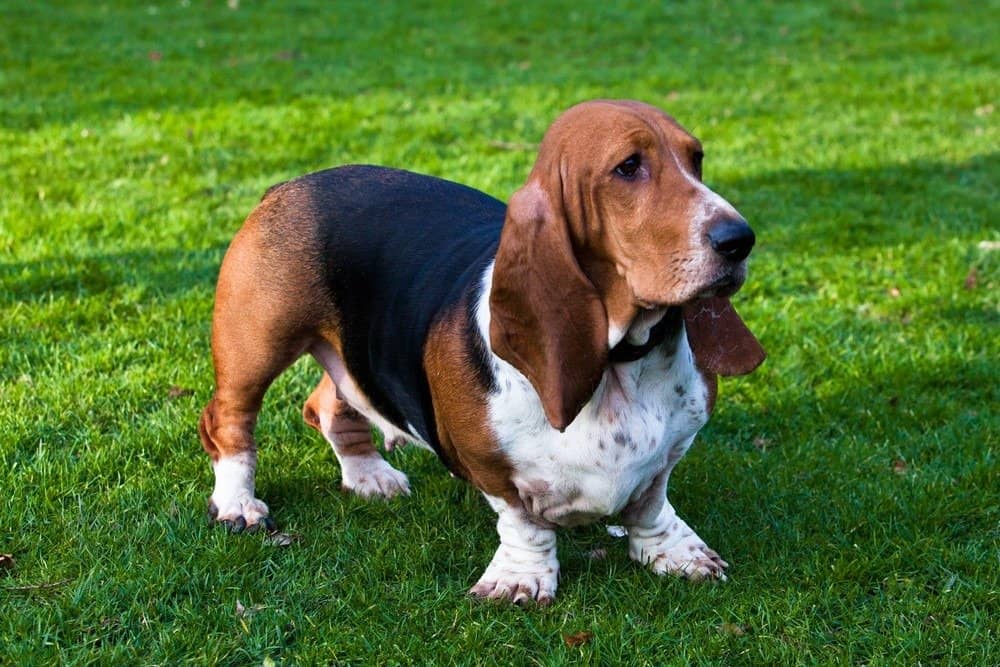
Basset hounds have strong little bodies.
©Ewa Studio/Shutterstock.com
Don’t let their short legs fool you! Basset hounds weigh 40-65 pounds and are strong, muscular dogs. They may be difficult to handle on a leash, especially if they catch the scent of a prey animal and get dead set on tracking it.
#6: They’re Vocal
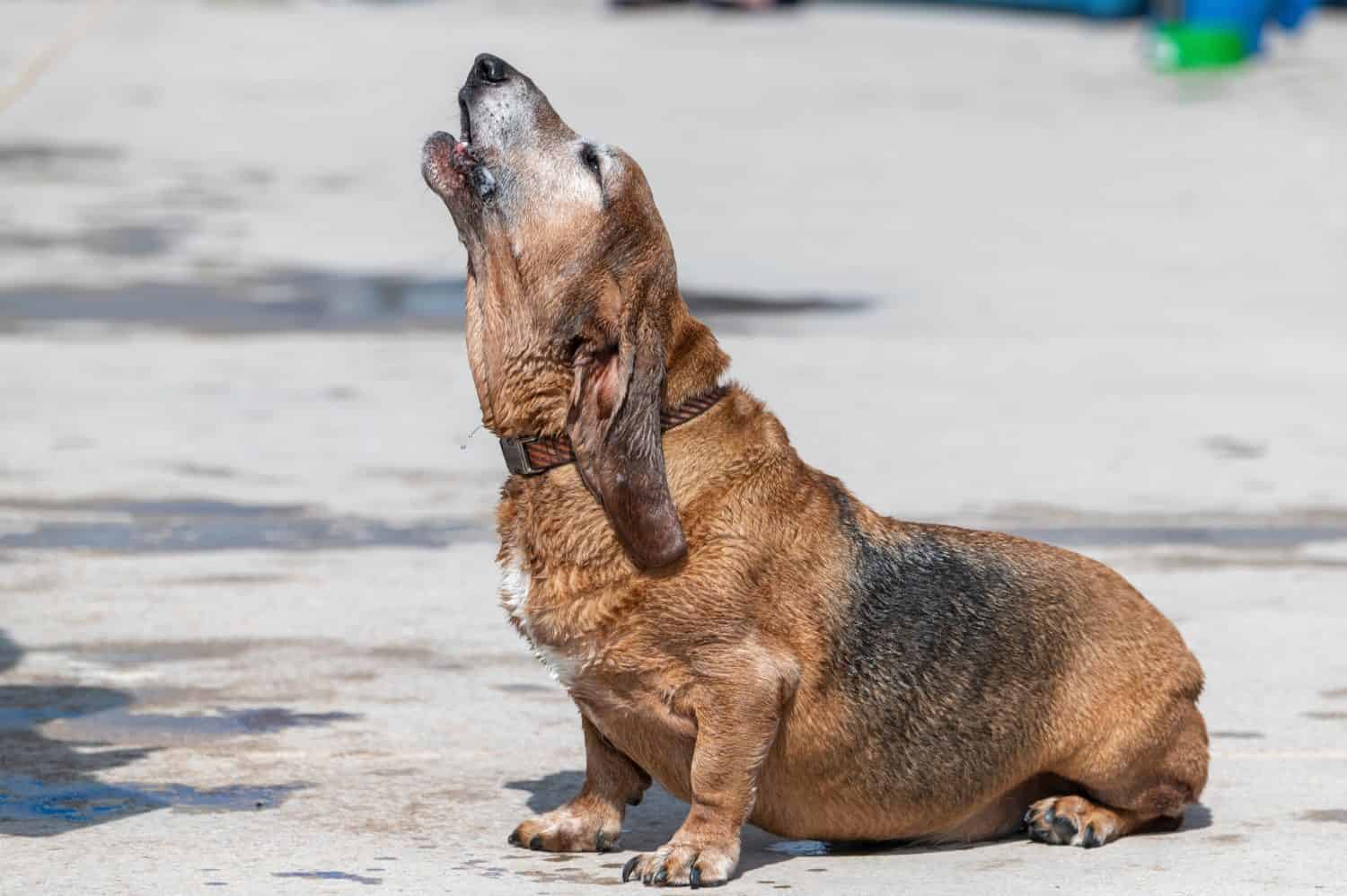
Basset hounds are loud dogs who might disturb the neighbors.
©GoDog Photo/Shutterstock.com
Like most hound dogs, basset hounds love to howl! They may also bark excessively and like to “talk” to their people.
Their deep voices tend to carry and aren’t for everyone. While you can train a “quiet” cue for problem barking, they’re still likely to be quite talkative. It’s in their personalities, and there’s not really a way to prevent that!
For this reason, basset hounds often don’t make good apartment dogs and may not be the best breed if you live close to your neighbors. You may have success finding a quieter adult rescue.
#7: They Snore
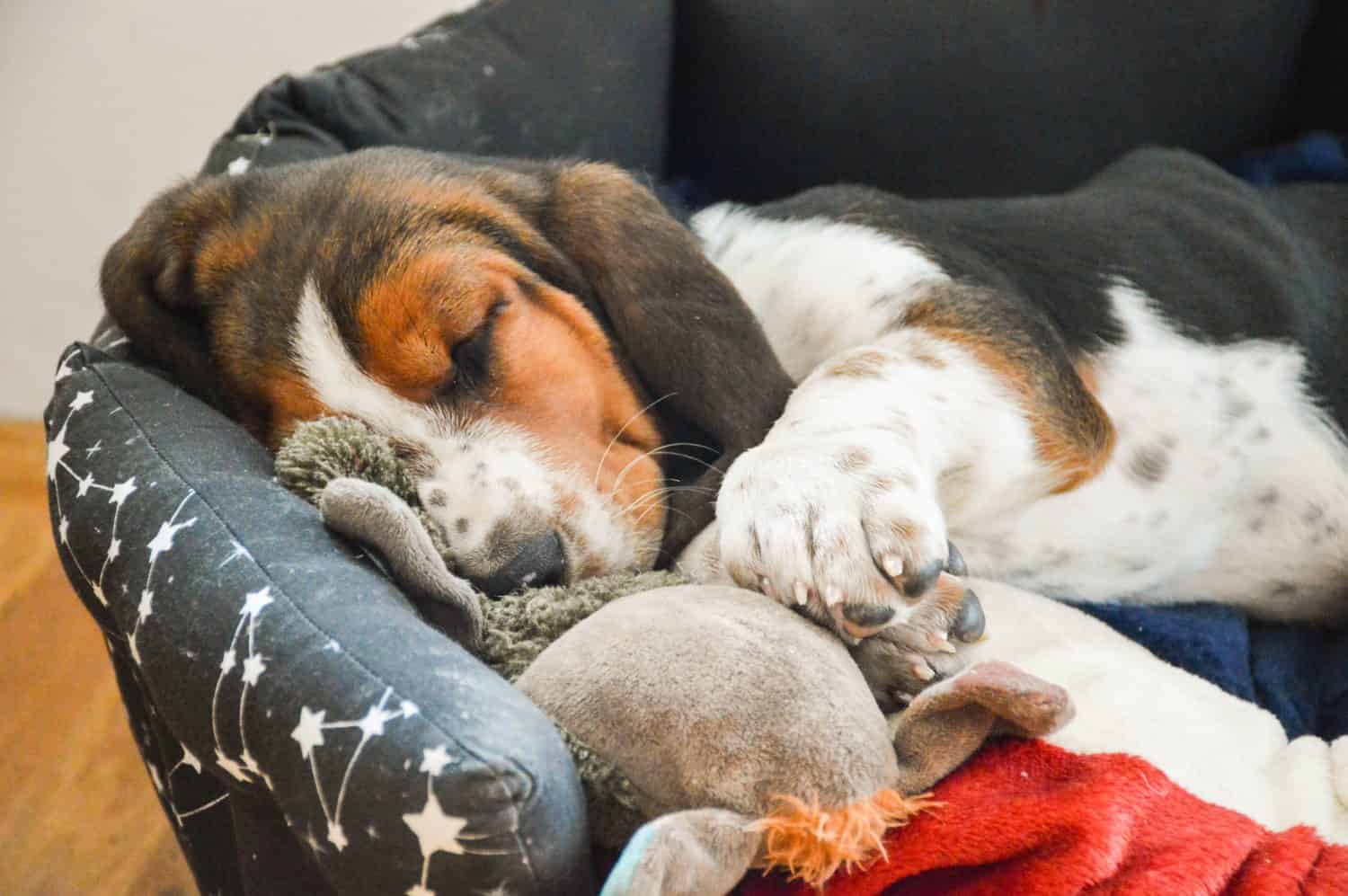
Basset hounds snore in their sleep.
©sandra.zivkovic/Shutterstock.com
Don’t expect your basset hound to hush when they’re sleeping, either. These dogs are known for their loud snoring which happens due to their body structure.
#8: Basset Hounds Can be Stubborn
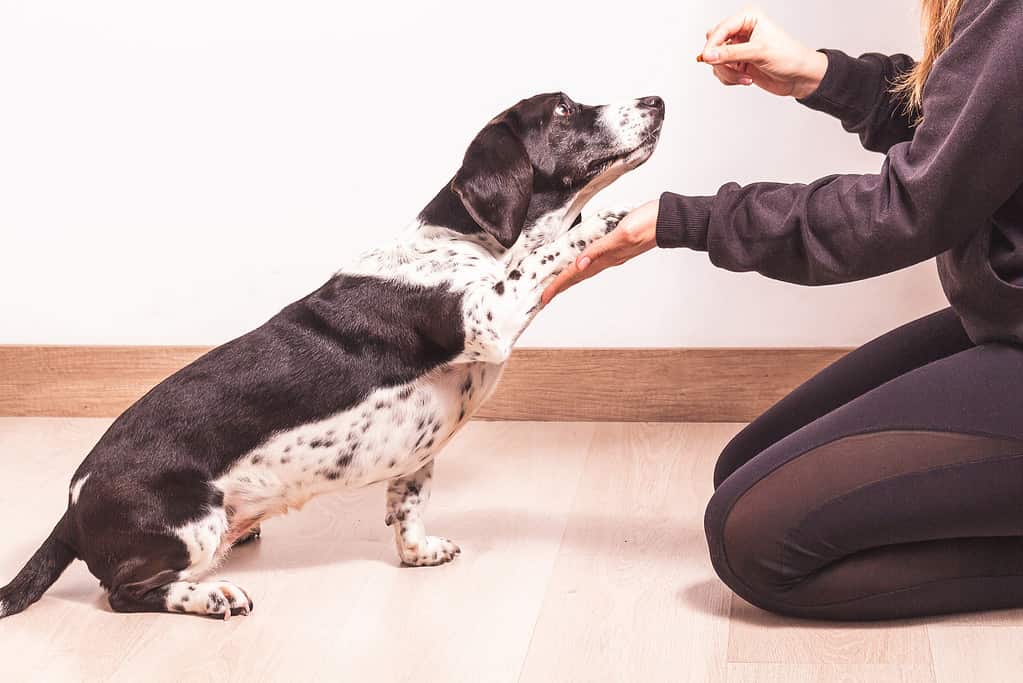
They take time and patience to train.
©Fabian Ponce Garcia/Shutterstock.com
Basset hounds tend to be slow learners, so don’t expect them to catch on to new cues as fast as your average Border Collie! These dogs can also be stubborn, further prolonging their training.
Always avoid aversive training methods, and instead keep training positive and fun. Making it into a game and offering the tastiest treats will make your basset hound want to keep coming back for more.
#9: They Drool
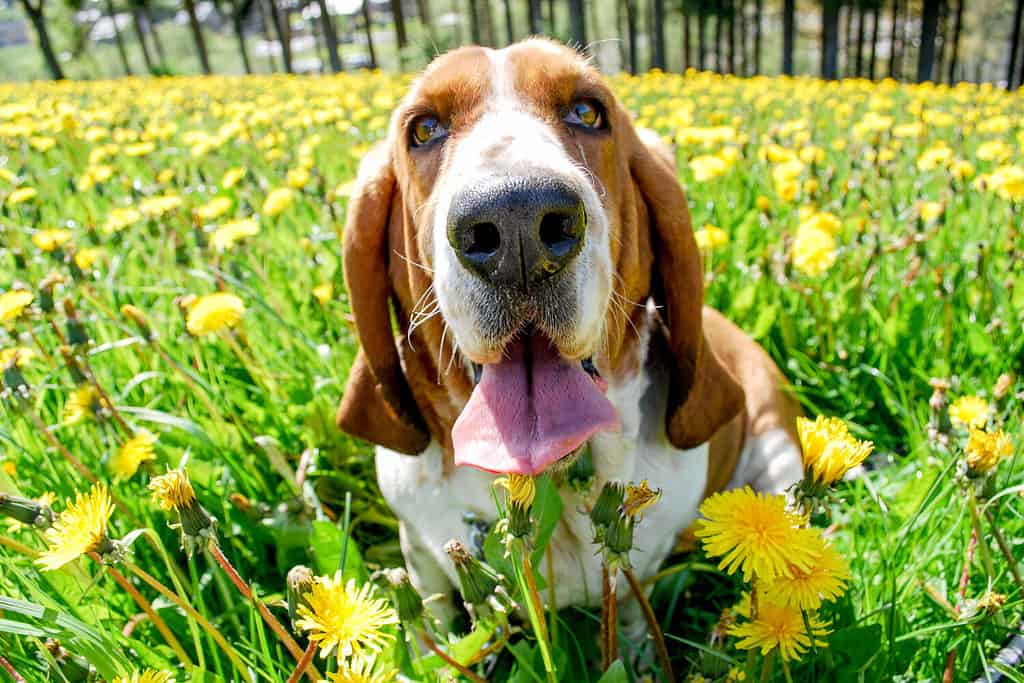
This breed drools a ton!
©praneem79/Shutterstock.com
If you don’t like being slobbered on, you might want to pass on adopting a basset hound! Their cute, droopy faces cause them to drool plentifully.
You’re bound to get drool on you, especially if they’re begging for a treat or sleeping with their head in your lap. They’re also likely to have a messy food and water dish area that needs constant cleaning.
#10: They Shed
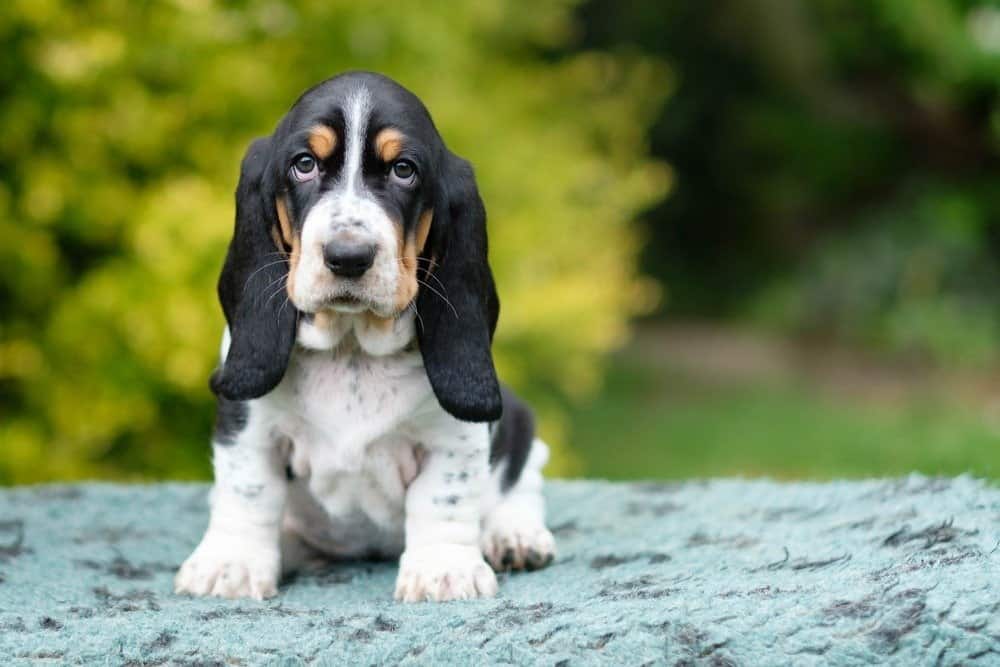
Despite their short coats, basset hounds shed a lot.
©Jon Buscall/Shutterstock.com
The mess doesn’t end with the drool. Basset hounds also shed year-round, though not as much as some other breeds. Though their coats are short, they’re also thick.
You’ll want to vacuum the floors and furniture regularly and perhaps purchase a reusable lint roller to get fur off of your clothing.
#11: They Tend to Fart Frequently

Basset hounds can be stinky!
©AaronAmat/iStock via Getty Images
Basset hounds are prone to digestive issues and are known for their smelly farts. It doesn’t help that, despite tummy troubles, they tend to want to eat everything in sight! (They’re like the lactose-intolerant person who’s always eating dairy!)
As their dog guardian, it will be your responsibility to feed them a balanced diet that agrees with their stomach. This and keeping their weight in check can go a long way to reducing their gassiness.
These dogs also tend to inhale their food, which can also cause gas. A slow feeder bowl will help to force them to slow down, enjoy their meal, and perhaps fart less after they’re finished!
#12: Basset Hounds are Prone to Health Problems
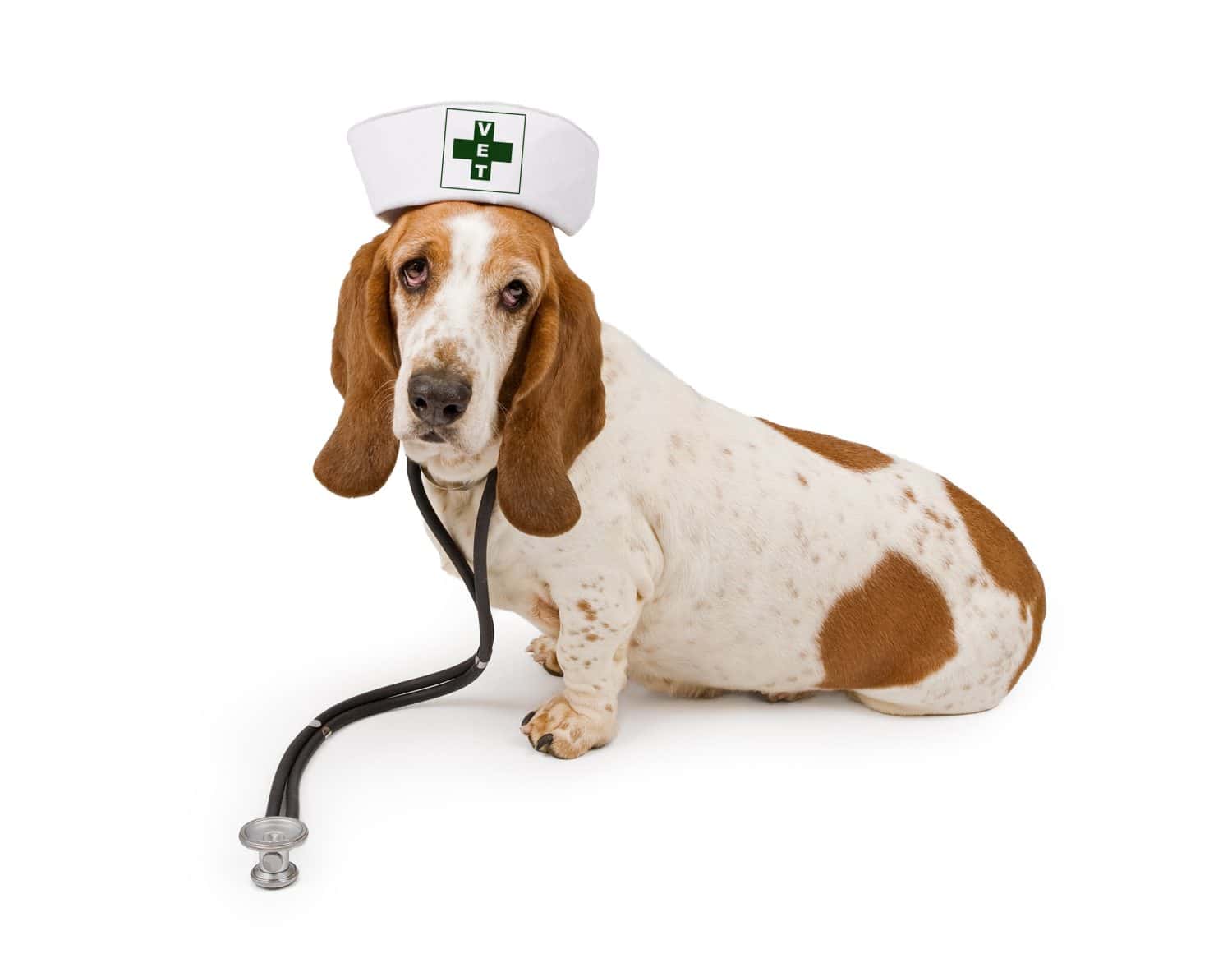
They’re prone to a number of genetic health issues.
©GoodFocused/Shutterstock.com
Aside from stomach issues, basset hounds are also prone to ear infections, spinal problems, and gastric dilatation-volvulus (also known as GDV or bloat). Extra weight tends to affect them heavily due to their short legs.
Ear infections are caused by the hounds’ long ears, which can trap bacteria and moisture. It’s important to check your basset hound’s ears at least once a month and clean them as necessary.
Although their long backs and short legs are adorable, the truth is that these features put basset hounds at much greater risk of spinal injuries. They should not be allowed to walk up and down stairs or jump on and off of furniture, and you should be careful to support their entire bodies when lifting them.
Our last piece of care advice is to know the signs of bloat, as it’s an incredibly deadly condition in dogs. Bloat happens when a dog’s stomach fills and turns inside the body, cutting off blood flow to other vital organs.
If you notice symptoms such as retching, pacing, a swollen, painful abdomen, excessive panting or drooling, or collapse, call your nearest emergency vet clinic and get them seen immediately.
Preventative measures for bloat include feeding multiple small meals a day in slow feeders, avoiding raised dishes, and avoiding exercise directly before or after meals.
The photo featured at the top of this post is © Bill Anastasiou/Shutterstock.com
Ready to discover the top 10 cutest dog breeds in the entire world?
How about the fastest dogs, the largest dogs and those that are -- quite frankly -- just the kindest dogs on the planet? Each day, AZ Animals sends out lists just like this to our thousands of email subscribers. And the best part? It's FREE. Join today by entering your email below.
Thank you for reading! Have some feedback for us? Contact the AZ Animals editorial team.






